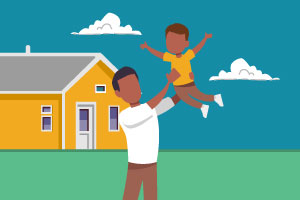
Protect Yourself and Your Family
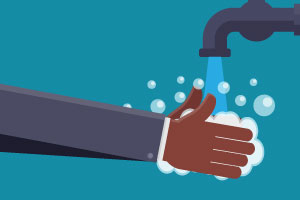
• Prevent Getting Sick
• Preventing spread
• Protect Others from Getting Sick
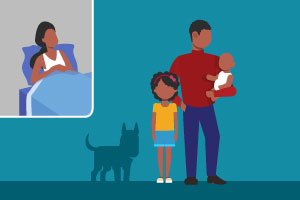
• Symptoms
• Caring for yourself at home
• Caring for Someone Who is Sick
What You Can Do to Keep Yourself and Your Family Healthy
• Take everyday preventive actions to stay healthy.
• Avoid close contact with people who are sick.
• Avoid touching your eyes, nose, and mouth.
• Stay home when you are sick.
• Cover your cough or sneeze with a tissue, then throw the tissue in the trash.
• Clean and disinfect frequently touched objects and surfaces using a regular household cleaning spray or wipe.
• Wash your hands often with soap and water for at least 20 seconds.
• Follow public health advice regarding school closures, avoiding crowds and other social distancing measures.
• Stay informed. CDC’s COVID-19 Situation Summary will be updated regularly as information becomes available.
Frequently Asked Questions and Answers
High Risk & Specific Populations
Prepare Yourself, Your Family, and Your Community
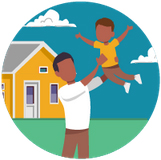
Protect yourself and your community from getting and spreading respiratory illnesses like coronavirus disease 2019. Everyone has a role to play in getting ready and staying healthy.
Here is what you can do to prepare your family in case COVID-19 spreads in your community.
• Know where to find local information on COVID-19 and local trends of COVID-19 cases.
• Know the signs and symptoms of COVID-19 and what to do if symptomatic:
○ Stay home when you are sick
○ Call your health care provider’s office in advance of a visit
○ Limit movement in the community
○ Limit visitors
• Know what additional measures those at higher risk and who are vulnerable should take.
• Implement steps to prevent illness (e.g., stay home when sick, handwashing, respiratory etiquette, clean frequently touched surfaces daily).
• Create a household plan of action in case of illness in the household or disruption of daily activities due to COVID-19 in the community.
○ Consider 2-week supply of prescription and over the counter medications, food and other essentials. Know how to get food delivered if possible.
○ Establish ways to communicate with others (e.g., family, friends, co-workers).
○ Establish plans to telework, what to do about childcare needs, how to adapt to cancellation of events.
• Know about emergency operations plans for schools/workplaces of household members.
Decisions about the implementation of community measures will be made by local and state officials, in consultation with federal officials as appropriate, and based on the scope of the outbreak and the severity of illness. Implementation will require extensive community engagement, with ongoing and transparent public health communications.


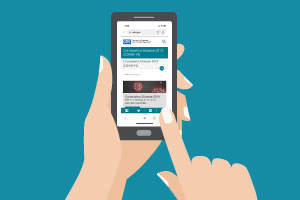

There is currently no vaccine to prevent coronavirus disease 2019 (COVID-19). The best way to prevent illness is to avoid being exposed to this virus. However, as a reminder, CDC always recommends everyday preventive actions to help prevent the spread of respiratory diseases, including:
• Avoid close contact with people who are sick.
• Avoid touching your eyes, nose, and mouth.
• Stay home when you are sick.
• Cover your cough or sneeze with a tissue, then throw the tissue in the trash.
• Clean and disinfect frequently touched objects and surfaces using a regular household cleaning spray or wipe.
• Wash your hands often with soap and water for at least 20 seconds. If soap and water are not readily available, use an alcohol-based hand sanitizer with at least 60% alcohol. Always wash hands with soap and water if hands are visibly dirty.
Handwashing Resources
For information about handwashing, see CDC’s Handwashing website
For information specific to healthcare, see CDC’s Hand Hygiene in Healthcare Settings
These are everyday habits that can help prevent the spread of several viruses. CDC does have specific guidance for travelers.




There is no specific antiviral treatment recommended for COVID-19. People with COVID-19 should receive supportive care to help relieve symptoms.
People who think they may have been exposed to COVID-19 should contact their healthcare provider immediately.

Call your doctor: If you think you have been exposed to COVID-19 and develop a fever and symptoms, such as cough or difficulty breathing, call your healthcare provider for medical advice.
Protect Others from Getting Sick
Caring for Someone Who is Sick

Prevent


Prevent Others from getting sick
10 Things to Manage Your Health at Home
10 things you can do to manage your health at home
If you have possible or confirmed COVID-19:
1. Stay home from work, school, and away from other public places. If you must go out, avoid using any kind of public transportation, ridesharing, or taxis.
2. Monitor your symptoms carefully. If your symptoms get worse, call your healthcare provider immediately.
3. Get rest and stay hydrated.
4. If you have a medical appointment, call the healthcare provider ahead of time and tell them that you have or may have COVID-19.
5. For medical emergencies, call 911 and notify the dispatch personnel that you have or may have COVID-19.
6. Cover your cough and sneezes.
7. Wash your hands often with soap and water for at least 20 seconds or clean your hands with an alcohol-based hand sanitizer that contains at least 60% alcohol.
8. As much as possible, stay in a specific room and away from other people in your home. Also, you should use a separate bathroom, if available. If you need to be around other people in or outside of the home, wear a facemask.
9. Avoid sharing personal items with other people in your household, like dishes, towels, and bedding
10. Clean all surfaces that are touched often, like counters, tabletops, and doorknobs. Use household cleaning sprays or wipes according to the label instructions.
For any additional questions about your care, contact your healthcare provider or state or local health department.
There is no specific antiviral treatment recommended for COVID-19. People with COVID-19 should receive supportive care to help relieve symptoms. For severe cases, treatment should include care to support vital organ functions.
People who think they may have been exposed to COVID-19 should contact their healthcare provider immediately.
See Interim Guidance for Healthcare Professionals for information on persons under investigation.